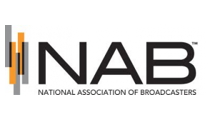This website uses cookies so that we can provide you with the best user experience possible. Cookie information is stored in your browser and performs functions such as recognising you when you return to our website and helping our team to understand which sections of the website you find most interesting and useful.
Business News Labels & Publishers Top Stories
US National Association Of Broadcasters opposes changes to ASCAP and BMI consent decrees
By Andy Malt | Published on Monday 11 August 2014
After collecting societies ASCAP and BMI both came out last week and suggested that the US government loosen up the country’s collective licensing system for music publishers, the National Association Of Broadcasters has opposed any change at all in its submission to the Department Of Justice’s ongoing review.
As previously reported, the DoJ is currently reviewing the ‘consent decrees’ that govern how ASCAP and BMI licence songs for public performance in the US. This comes as some publishers, Universal and Sony/ATV in particular, push to be allowed to withdraw their digital rights from the collective system in order to negotiate rates with digital services direct, while continuing to licence broadcast, live and such like collectively.
Both the societies support a move towards publishers being able to pick and choose which services they licence through the collective system. They also say that they should be allowed to licence mechanical rights as well as performing rights – something ASCAP noted in its submission last week that the third, smaller collecting society in the US, SESAC, is allowed to do should it so wish, as it is not governed in the same way by the consent decrees.
However, in a submission to the Department Of Justice’s Antitrust Division on Friday, the NAB said that the consent decrees should remain unchanged to prevent anti-competitive behaviour by the music publishers. They also held SESAC up as an example, though for their part as an organisation operating without consent decree control that, in the broadcasters’ opinion, shows why things shouldn’t be allowed to change for the bigger copyight groups.
The trade body said: “The aggregation of rights gives the PROs tremendous market power, which in the absence of the consent decrees would allow the PROs to extract supra-competitive pricing for their licenses. Radio and television broadcasters lack control, in certain instances, over the particular songs that are broadcast. Even with respect to programming created by broadcasters, each of the PROs has aggregated such a large repertory that there is often no practical way to avoid playing music licensed by each of the PROs”.
Arguing that withdrawing certain service types from the collective system would allow publishers to discriminate against different licensees, it added: “The major music publishers with substantial catalogues have essentially the same market power as the PROs because their catalogues do not compete with one another, and each has aggregated a large enough number of songs from individual songwriters as to make the licensing of their catalogues indispensable for broadcasters. If allowed to circumvent the consent decrees, those publishers will abuse their market power to extract supra-competitive rates, terms, and conditions from the blanket licensees they choose to target”.
Although the NAB is best known for representing the traditional FM and AM broadcasters, many of its members have ambitions in the streaming music domain also, so have a similar attitude towards digital licensing as Pandora, which is opposed to the flexible opt outs from collective licensing.
The NAB also called for greater transparency on the part of ASCAP and BMI within the existing system, saying: “Lack of meaningful access to such information has increased transaction costs and hindered licensing activities – both direct and collective. Repertory transparency would allow licensors, licensees, and the rate courts to better understand the rights that are being licensed and their value”.
Both Universal Music Publishing and Sony/ATV are yet to make their own submissions to the DoJ review, though these are expected shortly and are likely to echo those of ASCAP and BMI.






